As more people seek to reduce their carbon footprint and embrace self-sufficiency, sustainable living has become more than a trend—it’s a movement. At the forefront of this shift are modular cabins, offering an eco-conscious alternative to conventional homes through innovative design, minimal site impact, and off-grid capabilities.
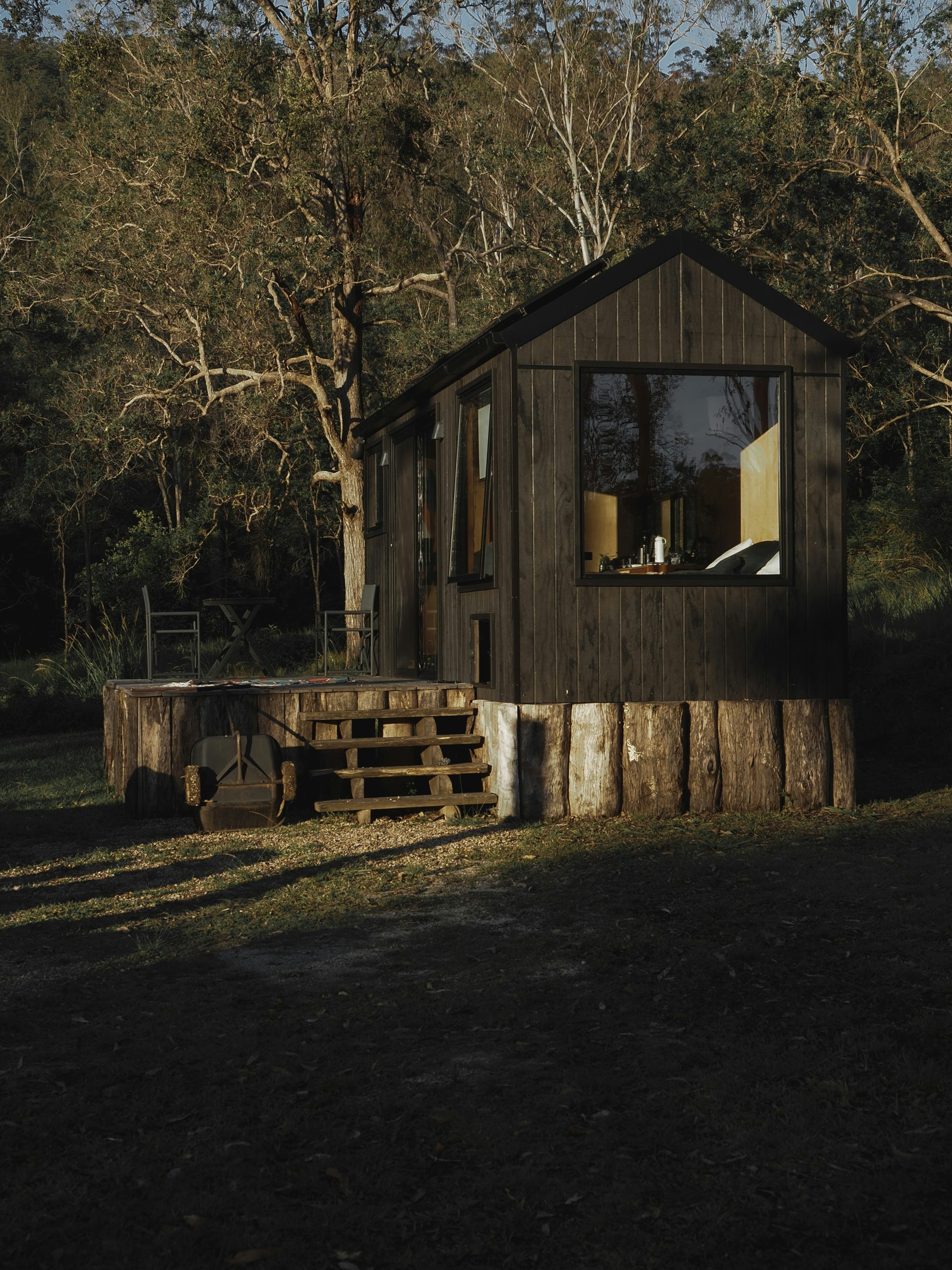
The Rise of the Modern Modular Cabin
Today’s modular cabins are a far cry from the rustic bush retreats of the past. These prefabricated structures are precision-built in controlled environments, delivered to site fully or partially assembled, and installed with minimal disruption. The result is a home that’s not only more sustainable but also faster to build and highly adaptable.
What Are Modular Cabins?
Modular cabins are prefabricated dwellings constructed off-site, then transported and installed on prepared foundations. Smaller cabins may arrive complete on a single trailer, while larger designs are delivered in modules and assembled on-site. This streamlined construction process results in less material waste, improved build quality, and a reduced carbon footprint.
Sustainable Materials and Efficient Construction
Modular construction methods can reduce waste by up to 50%, and today’s cabins are built using materials that reflect a commitment to sustainability.
- Sustainably Sourced Timber: Offers a warm, natural aesthetic and is a renewable, carbon-sequestering resource.
- Recycled Steel Frames: Provide structural strength while minimising environmental impact.
- SIP Panels (Structural Insulated Panels): These high-performance panels offer excellent insulation, reducing heating and cooling demands.
- Cross-Laminated Timber (CLT): Lightweight and strong, CLT reduces the need for deep footings, helping to lower site impact and material costs.
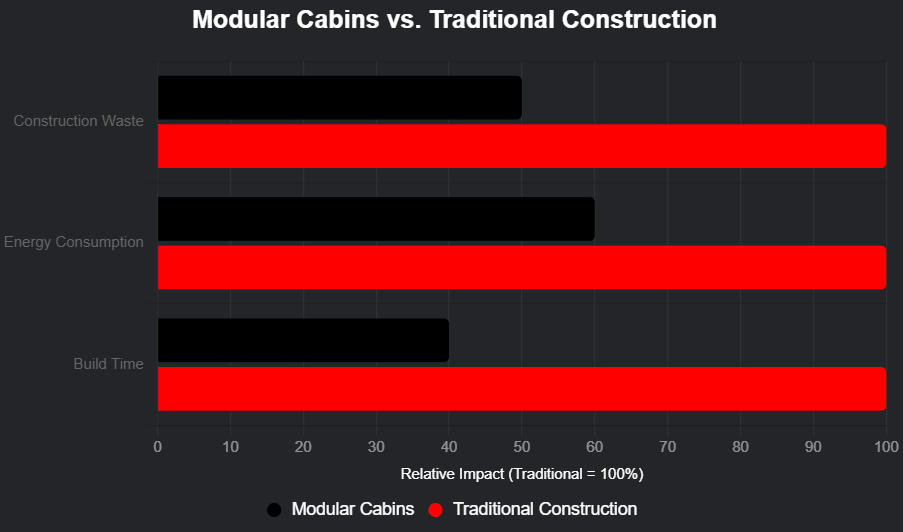
Why Modular Cabins Are Ideal for Off-Grid Living
Interest in off-grid living is growing, driven by a desire for autonomy and lower environmental impact. Modular cabins are well-suited to this lifestyle, designed to support energy and water self-sufficiency.
Energy Independence
Many modular cabins are equipped with integrated solar power systems and battery storage. These systems allow residents to live comfortably without reliance on the grid.
- Lithium-Ion Batteries: High energy density and fast charging make these the current industry standard.
- Solid-State Batteries: An emerging technology offering longer lifespans, greater storage capacity, and improved safety.
- Scalable Systems: Modular energy systems can be expanded over time to meet changing needs.
Water and Waste Self-Sufficiency
Modern modular cabins are designed to harvest and manage water on-site.
- Rainwater Harvesting: Roof designs incorporate guttering and downpipes that feed into storage tanks.
- Greywater Recycling: Reuses water from showers, sinks, and laundries for irrigation or toilet flushing.
- Composting Toilets: These waterless systems transform human waste into compost, eliminating the need for septic infrastructure.
Design Flexibility and Minimal Site Impact
Modular cabins are designed to adapt to a variety of sites and minimise land disturbance.
- Elevated Platforms: Reduce ground contact and protect sensitive vegetation—ideal for flood-prone or sloping sites.
- Anchor Systems: Secure cabins to the ground without extensive excavation, reducing environmental disruption.
- Portable Foundations: Allow for relocation, making these cabins ideal for temporary installations or eco-tourism developments.
Eco-Tourism and the Modular Movement
Modular cabins are increasingly being adopted in eco-tourism developments due to their light environmental footprint and flexible deployment.
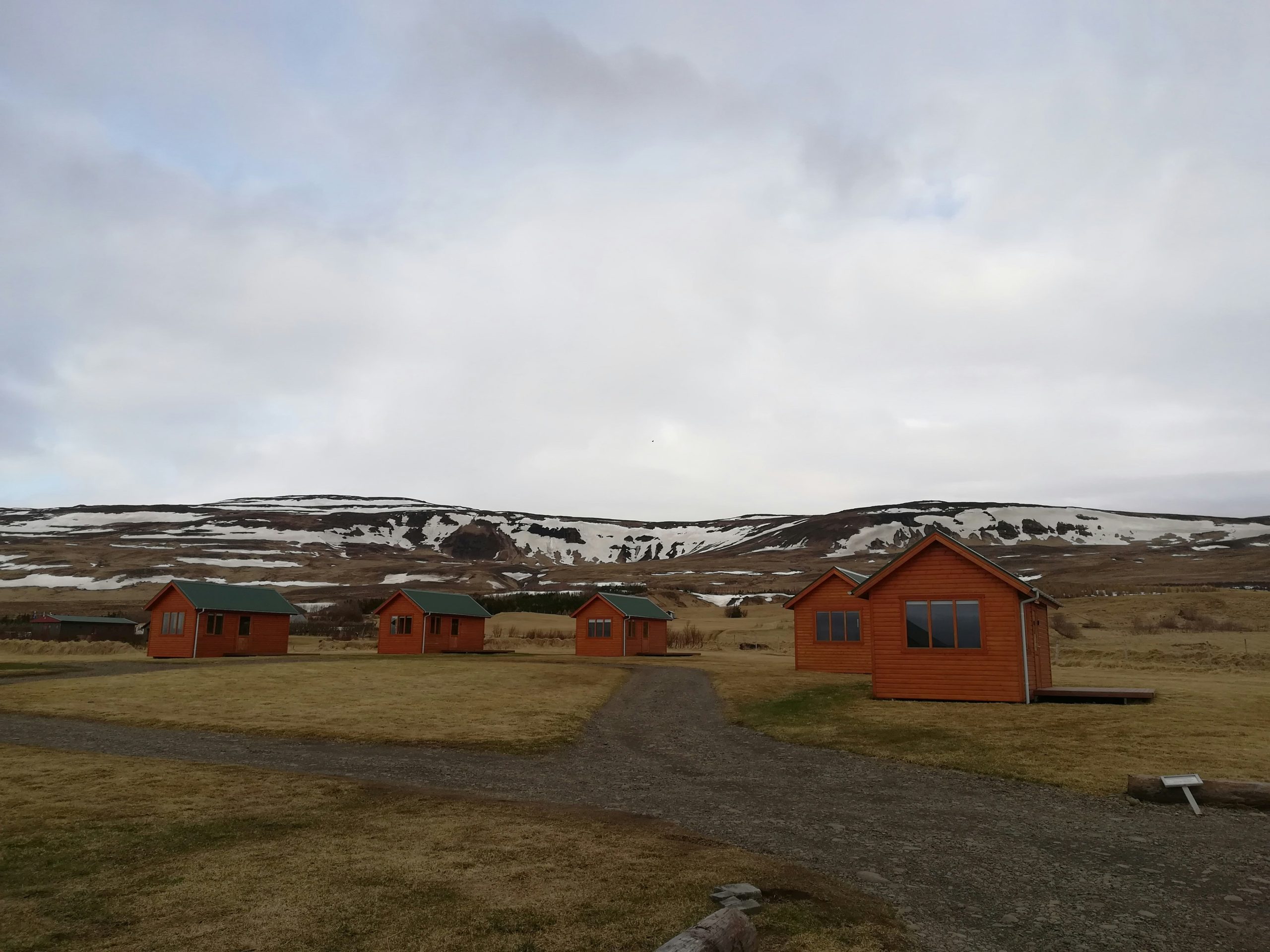
Why Eco-Tourism Favour Modular Solutions
- Scalable Deployment: Easily increase or relocate units as demand shifts.
- Low Impact: Factory-built modules significantly reduce on-site construction waste.
- Energy Efficiency: Many cabins operate entirely off-grid, relying on renewable energy and self-contained utilities.
Examples of Eco-Friendly Modular Cabins
- Nokken Hotel Cabins: A modular luxury stay powered by solar energy and equipped with composting toilets.
- Gawthorne’s Hut (NSW, Australia): A 100% off-grid retreat featuring solar power, rainwater storage, and greywater recycling.
Affordability and Accessibility
Modular cabins aren’t just sustainable—they’re cost-effective and accessible.
- Lower Construction Costs: Prefabrication can cut labour costs by up to 30%.
- Energy Savings: Efficient insulation and renewable energy systems reduce ongoing energy bills.
- Low Maintenance: Durable materials such as CLT and recycled steel result in fewer repairs and lower maintenance costs over time.
Final Thoughts
Modular cabins are redefining what it means to live sustainably. With flexible design, renewable energy integration, and a low-impact construction approach, they provide a viable and inspiring alternative to conventional housing. Whether for permanent residences, weekend escapes, or eco-tourism ventures, modular cabins are leading the way in sustainable, off-grid living.
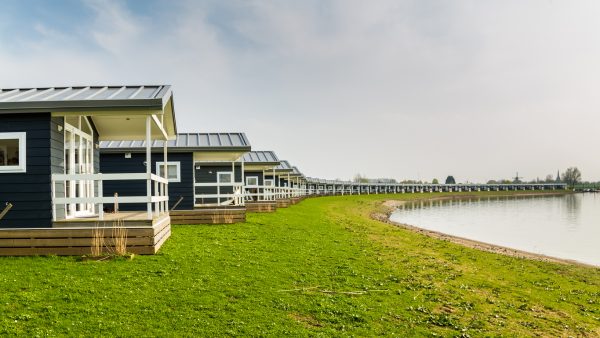
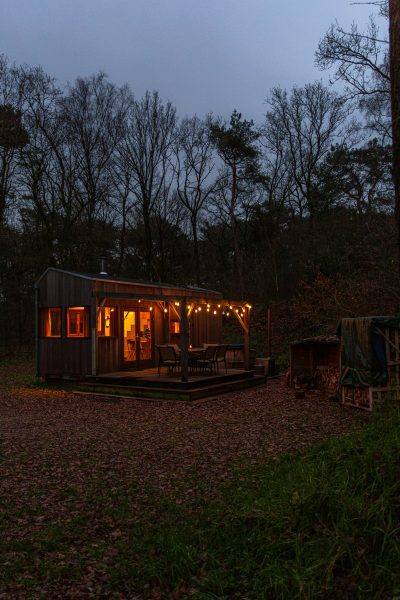
Absolutely loved how this article highlights the shift toward eco-conscious living. Modular cabins are truly game-changers for anyone aiming to live off-grid in style. I’ve been exploring sustainable designs myself through my blog https://tinylifehouse.com , where I dive into minimalist homes and budget-friendly living tips. Keep up the great content!
Thanks so much! Great to hear from someone also passionate about sustainable living. Love what you’re doing with Tiny Life House!